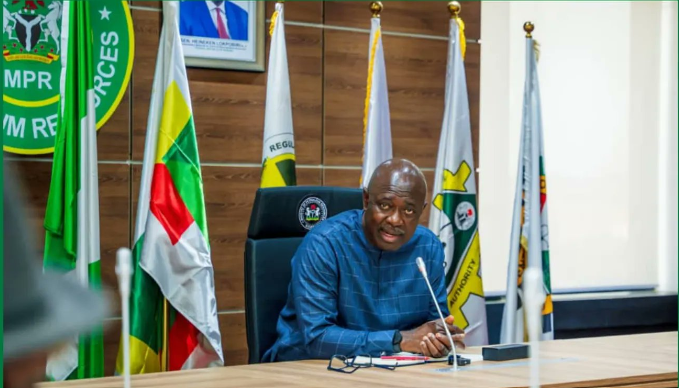
The Minister of State for Petroleum Resources (Oil), Senator Heineken Lokpobiri, has announced that the country has broken a 10-year drought in oil sector investments, thanks to reforms introduced under President Bola Tinubu’s administration.
Lokpobiri disclosed this in a statement issued by his Special Adviser on Media and Communication, Nneamaka Okafor, on Thursday. The remarks followed his keynote address at the United States–Nigeria Council’s session on oil sector collaboration, held on the sidelines of the ongoing United Nations General Assembly in New York.
According to the minister, the period of stagnation crippled growth, eroded investor confidence, and left several oil blocks inactive. However, he stressed that recent policy changes have repositioned Nigeria as an attractive destination for global energy investments.
“At the heart of Nigeria’s renewed energy agenda is a clear and deliberate policy direction: to open our oil sector to deeper, smarter, and more strategic partnerships,” Lokpobiri stated. “The time to invest is not just now—it is ripe.”
Lokpobiri explained that for over ten years, prior to President Tinubu’s leadership, Nigeria did not record any new investments in its oil sector.
He noted that this trend has reversed, with fresh commitments now running into billions of dollars.
“All inactive blocks during the period of no investments are now in the basket and up for grabs,” he said. “We have a longstanding relationship with the United States and US companies, but beyond these, there are new opportunities for investors in both upstream and other oil industry segments.”
He highlighted that Nigeria’s oil production has already recorded significant progress in the last two years, owing to bold reforms and globally competitive fiscal regimes.
Central to this transformation, the minister noted, is the successful implementation of the Petroleum Industry Act, which he described as a robust, investor-friendly legal framework.
“The PIA has helped us to create an environment where investors can operate with clarity, confidence, and security,” Lokpobiri said. He added that the legislation has provided a stable platform for driving growth, encouraging partnerships, and restoring long-term investor trust.
The minister also reassured the international community of Nigeria’s commitment to a balanced energy transition. While fossil fuels will continue to play a vital role in financing the country’s energy mix, Nigeria remains committed to global climate agreements.
“We are fully aligned with the Paris Agreement and remain committed to cleaner, more sustainable exploration,” Lokpobiri said. “Our doors are open, our laws are clear, and our environment is conducive. Now is the time for US and global investors to become part of Nigeria’s energy success story.”
Recent government actions—including the removal of fuel subsidies, deregulation of the downstream sector, and renewed emphasis on gas monetisation—have also been flagged as proof of Nigeria’s seriousness in reforming its energy industry.
These reforms, Lokpobiri noted, are already restoring confidence among international partners and are expected to drive Nigeria closer to its investment targets. The federal government aims to attract $30bn in sectoral investments by 2027 and at least $60bn by 2030.
The minister further stressed that Nigeria’s reforms are not only enhancing domestic production but also positioning the country as a dependable energy hub across West Africa and the continent at large.
“Thanks to bold reforms and globally competitive fiscals, Nigeria has significantly ramped up production and repositioned itself as a dependable energy hub,” Lokpobiri declared.
He urged global investors to seize the opportunities emerging from Nigeria’s rapidly transforming oil and gas industry, stressing that the sector’s success would also contribute to regional stability and global energy security.
Lokpobiri’s call to investors comes at a critical moment, as Nigeria seeks to consolidate its oil sector recovery while balancing its energy transition agenda. By leveraging both fossil fuels and renewable resources, the government hopes to sustain growth, expand job opportunities, and strengthen the nation’s economic base.
With reforms now underway and billions already committed, stakeholders believe Nigeria’s oil
PUNCH.




